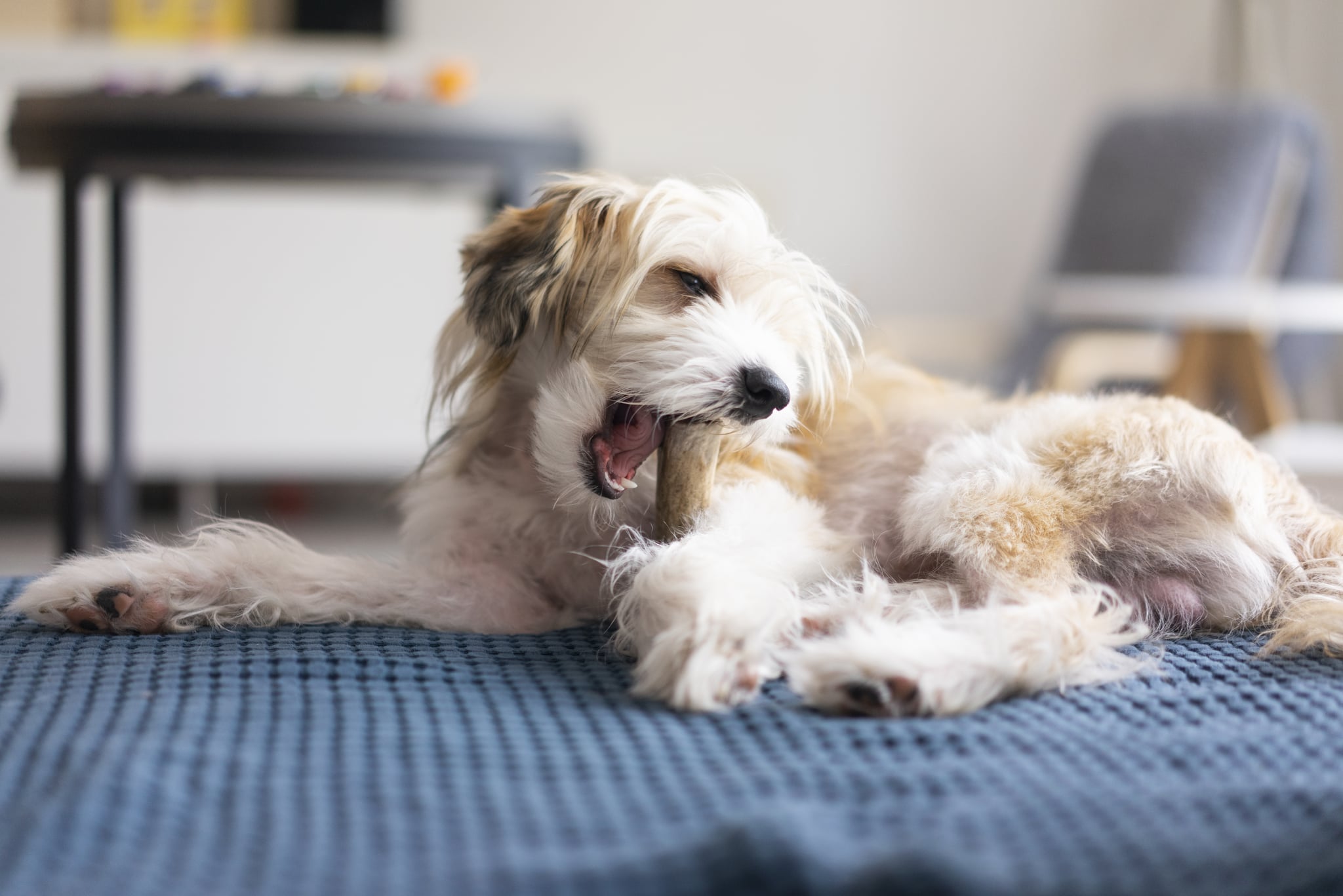The Best Raw Bones for Dogs to Chew On, According to Vets
Thinking About Giving Your Dog a Raw Bone? Here's What Vets Want You to Know

Want to give your dog a bone but not sure which bones are best? Dogs chew on bones to relieve stress and to combat teething pain when they are puppies. You'll want to give your dog raw bones to chomp on, and some bones are better than others. We reached out to the experts to learn more.
Are Raw Bones Safe For Dogs?
Dogs can have raw animal bones, Maureen Murithi, DVM told POPSUGAR, as long as you keep them fresh and don't allow your dog to break them into pieces. Larger breeds such as german shepherds, mastiffs, and rottweilers need to chew large bones that cannot be swallowed whole.
"You'll want to make sure that a solid bone can't be ingested in its entirety,"
Stacy Choczynski Johnson, DVM, told POPSUGAR. "For this reason, the bone should not fit fully in the dog's mouth. I would also avoid a bone where the lower jaw can fit into the interior of the bone."
And while raw bones can be safe, cooked or smoked bones are hazardous for dogs. "The cooking process makes them soft, brittle, and they can easily splinter. Bone splinters can choke or injure the esophagus, stomach, or intestines," Dr. Murithi cautioned.
Which Raw Bones Are Best For Dogs?
"The best raw bones for dogs are usually soft, hollow, and contain any form of connective tissue such as cartilage," Dr. Murithi said. "Poultry bones are preferable, including the wings, neck, feet, and back bones." She also listed pork feet, pork tail, lamb, venison, beef ribs, and ox as other good alternatives.
Dr. Choczynski recommends choosing granulated rawhide because it is more likely to break down through chewing and digestion. You want your dog's teeth to be harder than the bone itself to avoid fractured teeth. "I always think about a war between the chew and the tooth itself — the hardest material wins and the other will break," she said.
Is Chewing Bones Good For My Dog?
Yes! Chewing on bones benefits dogs both physically and behaviourally. "Bones are a rich source of calcium which is essential for bone growth. Calcium is also involved in various body physiological processes such as blood coagulation, muscle contraction, and heart health," Dr. Murithi explained. She cited dental health, noting that, "Connective tissue found in raw bones helps prevent plaque and tartar build-up, and therefore, prevent gum disease," and behavioural benefits, saying that, "bone chewing helps keep dogs mentally stimulated, preventing them from being destructive."
What Else Should I Consider When Giving My Dog a Bone?
Dr. Murithi emphasised the importance of giving your dog fresh bones. She pointed out that raw bones need to be treated like raw meat, including refrigerating them after about 15 to 20 minutes of being out and disposing of them after three to four days. "Raw bones should be served in a clean environment and after feeding the feeding area should be cleaned to prevent the growth of bacteria," she said.



